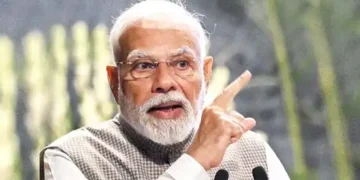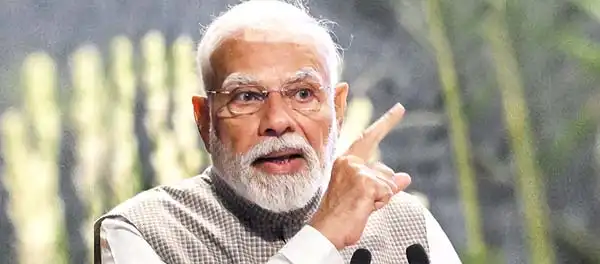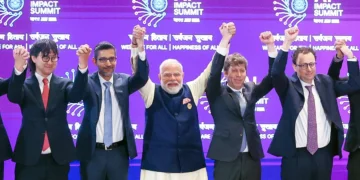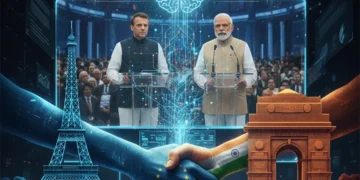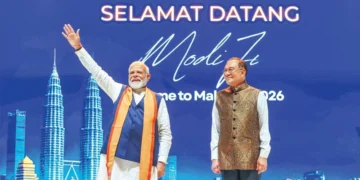PRIME Minister Narendra Modi has come out swinging against US President Donald Trump’s latest tariff threat urging India to buy and sell local goods. “The nation needs to remain alert to its economic goals, especially at a time when the world economy is going through uncertainty and instability,” he recently said at a meeting in Varanasi.
Speaking at the MS Swaminathan Centenary International Conference in New Delhi on August 7, PM Modi said, “For us, the interest of our farmers is our top priority. India will never compromise on the interests of farmers, fishermen and dairy farmers. I know we will have to pay a heavy price for it, and I am ready for it. India is ready for it.”
Swadeshi call
The call for ‘Swadeshi’ (made in India) is part of the economic philosophy of the ruling Bhartiya Janata Party (BJP). But it acquires significance in the backdrop of US President’s announcement of 25 per cent tariff on Indian goods last week and an additional 25 per cent tariff for continuing to buy Russian oil in defiance of Trump’s threats.
Taking note of the situation, PM Modi said that the world is going through “unstable” times and most countries are prioritising their own interests. “As India moves closer to becoming the world’s third-largest economy, it must stay focussed and protect its own economic priorities,” he said.
While talking about the importance of supporting Indian-made goods, PM Modi called for a renewed commitment to ‘Swadeshi’. “Every Indian, be it a citizen, trader, or leader, should come forward to support indigenous products.” Without any direct reference to the anti-India and pro-Pakistan tilt in the US administration’s recent actions, the Prime Minister has framed his message as a defence of economic self-reliance. “In a world where every country pursues its interests, we must ensure that whatever we buy is made by the sweat of an Indian,” he said.
He called on shopkeepers, traders, and consumers alike to champion indigenous products—an imperative he tied to both economic resilience and the cultural legacy of Mahatma Gandhi and Aurobindo Ghosh.
For over a decade, PM Modi’s economic vision has focused on growth, scale, self-reliance, and global competitiveness. But with rising global protectionism, PM Modi has repositioned Swadeshi—economic self-reliance— not just as policy, but as a cultural and strategic imperative.
This wasn’t a spontaneous move—it was a calibrated response to geopolitical pressure, signalling that India won’t bow to external coercion. PM Modi’s overt embrace of the term Swadeshi—long championed by the RSS and the Swadeshi Jagran Manch (SJM)—suggests deeper alignment with nationalist economic thought. Beyond symbolism, the timing is critical. This Swadeshi thrust mirrors global trends: the US’s Inflation Reduction Act, the EU’s selective decoupling from China, and Germany’s industry subsidies. While India’s market remains attractive, the message is clear: foreign firms must localise, create value in India, and respect its economic sovereignty.
Selective targeting
India will take all actions necessary to protect its national interests, the MEA said in a statement. It called the Trump actions unfair, unjustified and unreasonable. New Delhi has already made clear its position on these issues, including the fact that country’s imports are based on market factors and done with the overall objective of ensuring the energy security of 1.4 billion people of India, it said and added, “It is therefore extremely unfortunate that the US should choose to impose additional tariffs on India for actions that several other countries are also taking in their own national interest,” it added.
